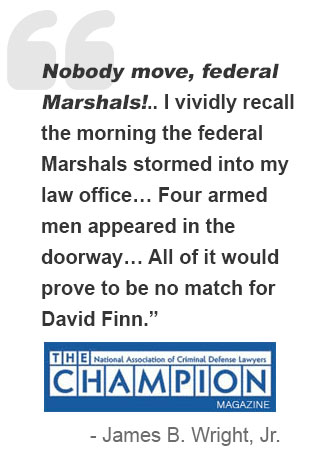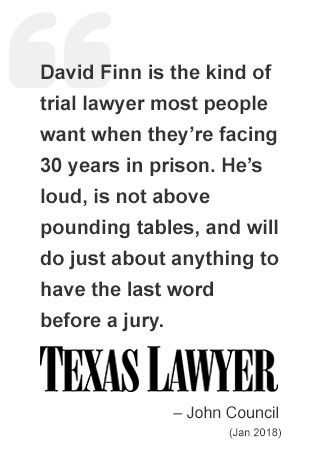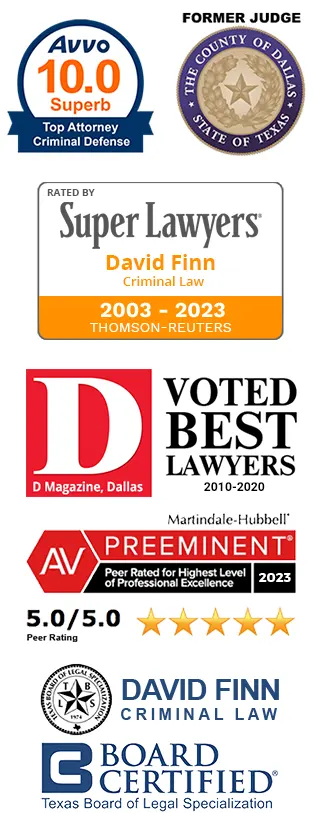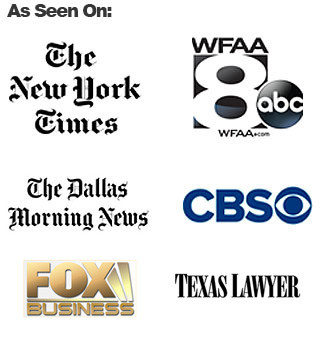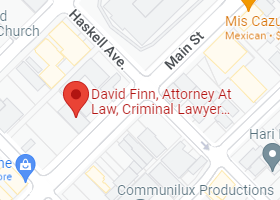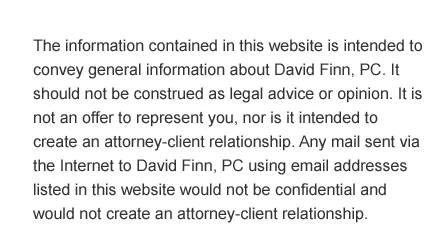

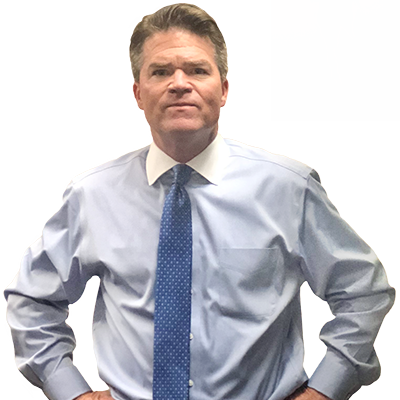
Finn Teams up with Dan Cogdell and Mike Gibson in Dallas DISD Case
Here’s an interesting article that appeared in Texas Lawyer regarding Attorney Dan Cogdell. I’ve never met him but I look forward to working with Dan in the recently-indicted Dallas DISD case. The case described below reminds me of a good John Grisham novel. Maybe Dan’s working on the screen-play now.
Enron Defendant Worked Alongside Attorneys to Win Acquittal
Brenda Sapino Jeffreys
Texas Lawyer
November 18, 2004
When Houston lawyer Dan L. Cogdell defends a client from criminal charges, the client usually is nowhere to be found when Cogdell studies discovery and develops a defense. But that wasn’t an option for former Enron Corp. employee Sheila K. Kahanek, a self-described “major anal-retentive” who was determined to go to trial to fight the charges against her and felt compelled to analyze every piece of evidence in the government’s case.
The unusual collaboration between Cogdell and his client paid off in a big way for Kahanek, who was the only one of six defendants in the so-called Nigerian barge trial to win acquittal on Nov. 3 in U.S. District Judge Ewing Werlein’s court in Houston.
“There’s no way I would have won the trial without Sheila working her ass off,” says Cogdell, of Cogdell Law Group. “She literally had this trial indexed, highlighted, organized.”
“She knows every document in the case — cold,” he says.
Cogdell estimates the value of Kahanek’s work on her own defense at $150,000 to $200,000. An associate or paralegal normally would have handled much of the work Kahanek did, he says.
“She definitely saved herself a lot of money by doing a lot of the work, but her insight into the discovery, her insight into the processes of how things worked at Enron was definitely indispensable,” says G. Allen Goodling, Cogdell’s former partner who also worked on Kahanek’s defense.
Jury consultant Richard Waites, who has assisted lawyers and parties in trials for 25 years, says Kahanek’s role in her defense was not only very unusual, but also very effective.
“It’s very simple. In this case she was motivated, she had an eye for detail, and she understood that she didn’t know everything,” Waites, president of The Advocate in Houston, says. “She was confrontational with Dan, but in a healthy way — she asked lots of questions, in other words. If she didn’t understand something, she spoke up, and she never presumed she knew the playing field and knew the rules of the game.”
In the verdict returned on Nov. 3, a 12-member jury found Kahanek, 38, not guilty of charges of conspiracy to commit wire fraud and to falsify books and records. Five other defendants, including one former Enron employee and four former employees of Merrill Lynch, were found guilty of those charges.
In United States of America v. Daniel Bayly, et al., the government brought criminal charges in connection with a December 1999 deal in which Merrill Lynch bought some electricity-producing Nigerian barges from Enron. The indictment alleged Enron parked the barge assets with Merrill, promising to buy them back within six months at a profit for Merrill, to “enhance fraudulently” its 1999 financial reports.
The indictment alleged that there was an oral agreement in which Enron promised to buy the barges back from Merrill Lynch, but Kahanek testified that she knew nothing while working at Enron about any side deal.
NO STONE UNTURNED
Kahanek says she actually had a little practice at litigation support before she found herself in the precarious position of being one of the first two former Enron employees to go to trial in a federal criminal trial stemming from the downfall of the once high-flying energy company.
Kahanek, a graduate of the University of Houston-Clear Lake, wasn’t a long-term employee of Enron. Before taking a position in Enron’s Asia Pacific/Africa/China division (APACHI) in 1998, she worked in the audit department at Ernst & Young, where she did some litigation support. She left Enron in mid-2001, and after taking off a few months, returned to Ernst & Young.
While a director at APACHI in 1999, Kahanek says she worked on structuring the Nigerian barge deal, but says she knew nothing about an oral agreement between Enron and Merrill Lynch, and repeatedly warned against it as the people negotiating the deal for Enron proposed “what ifs” about the structure of the deal. She says she consistently said, “no buybacks, no commitments, no guarantees, period.”
Kahanek says she was surprised when she was indicted in September 2003 in connection with the barge deal.
In 2002, Kahanek recalls, she met with two federal investigators who questioned her about Enron’s Broadband division. Nothing at that meeting — she says she met the investigators at a Starbucks coffee shop — worried her.
But in August 2003, the Enron Task Force called Kahanek in for questioning again, and that time the meeting was at the offices of the task force in the Bob Casey U.S. Courthouse in Houston. After Assistant U.S. Attorney Andrew Weissmann, now head of the task force, told her that her status was somewhere between a witness and a subject, Kahanek asked to do the interview at another time when she could return with an attorney.
She was indicted the next month, before she could reschedule that interview.
Weissmann did not return a telephone message seeking comment before presstime on Nov. 11.
Kahanek says Houston criminal-defense lawyers Christopher Downey and Patrick Stallings represented her at the time, but she was determined to go to trial, and she wanted to hire a lawyer with a lot of trial experience in federal court. A friend arranged a meeting with Houston’s Dick DeGuerin, of DeGuerin, Dickson & Hennessy, who gave her the names of a few other lawyers, including Cogdell. She says she interviewed three or four lawyers, but Cogdell impressed her immediately.
“I liked his attitude, his confidence,” she recalls.
She told him at their first meeting that she wanted to have an active role in her defense.
“Because this was my case, I wanted to see everything. I wanted to review everything. I didn’t want to leave a stone unturned, and I would be handling the majority of that,” she says. “Dan has an amazing ability to understand some of the key concepts of some of the structuring issues, but at the same time, when I was aware of certain parts of it, it was easier for me to sift through some of the minutia.”
Downey, of Downey Law Firm, says, “I don’t think I’ve ever encountered anybody who was so willing to digest and collate more information than Sheila. She was truly unique in that regard.” Stallings, of Stallings & Mount, says Kahanek made it clear she would be involved.
She says each of the lawyers she interviewed was receptive to her plans to work on her defense, and she acknowledges it was a factor in her fee negotiations.
“They all knew that I was available and I had a good understanding of all of these things, and they could pretty much stick to their core competency, which is the criminal aspects of it, and I could stick to my core competency, which is the business aspect of it.”
Cogdell says he agreed to represent Kahanek because she’s innocent and because he has problems with the Enron Task Force’s selection of individuals to charge in connection with the Enron debacle. In his view, the government should not have brought charges against Kahanek, and should have charged some others who were witnesses for the government during the Nigerian barge trial. Cogdell says his fee totaled less than $100,000.
PIECING IT ALL TOGETHER
Since Kahanek’s indictment in September 2003, she had a lot of time on her hands. After she was indicted, Kahanek lost her job at Ernst & Young. Other than the time Kahanek spent on her master’s of business administration degree at Rice University — she graduated in May — she worked on her defense.
Kahanek says she installed a 4-by-8-foot white board in her home office, brought in a copier, printer and fax machine, and began to spend eight to 10 hours a day reading discovery and culling the relevant information. She says she had to go through some documents eight to 10 times to begin to piece together what may have happened with the Nigerian barge deal.
“My thing was to leave no stone unturned,” she says.
She started that process in November 2003 with two binders of “hot documents” provided by the government. She says she went through a million or more documents and e-mail records over the next six months, and by April or May of this year, Kahanek says she had pretty much organized the evidence. She pulled it together into eight to 10 trial binders that highlighted the key information about each potential witness and included tabs to key documents.
Cogdell says they spent hours in his office going though those binders, page by page.
“It was not an easy process,” he notes.
Kahanek says that while she did the document work, a private investigator, Clark Dickenscheidt of Houston’s CDI Investigations, did witness interviews. Dickenscheidt, chief investigator at CDI, says Kahanek was able to go through the evidence much faster than he or Cogdell could to identify crucial witnesses.
“The potential witness list was exhaustive. There were so many people who worked in that division at Enron … it really came down to tracking down who was worth talking to,” Dickenscheidt says.
He says Kahanek did a good job of keeping him, Cogdell and others at Cogdell’s office on track.
“She would call me and point out things and bring things up. I would call her and call the attorneys on the case as well. It was real open communication with her,” Dickenscheidt says.
Cogdell says his former partner in Cogdell & Goodling, Goodling, worked on the case with him, but they dissolved their partnership shortly before trial because of the Kahanek case. It wasn’t over strategy or money, Cogdell says.
Goodling, now a solo practitioner, declines comment on the breakup of their firm.
Cogdell says it became clear that Kahanek knew little about the reality of the deal until she plowed through the discovery. It was a “little troubling” to him that Kahanek would have to keep her prior knowledge of the deal separate from what she learned about it during research, but he says she retained a very specific memory of what occurred when she was at Enron.
“She’s very bright, obviously, and I kept trying to reinforce that she keep clearing her mind, keep that distinction,” he says.
Cogdell says Kahanek’s knowledge of the evidence in the case helped her on the witness stand when Assistant U.S. Attorney Kathryn Ruemmler cross-examined her. [See “This Isn’t New York,” below.]
“I worked with Dan for six years, and I’ve worked with other lawyers before that in many capacities, and [I’ve] never seen a client with that much base and knowledge in that kind of case,” Goodling says.
Cogdell says he doesn’t know if there was an oral agreement. “Our position is I don’t know or don’t care if there was an oral agreement. Kahanek’s position is she didn’t know if there was one,” he says.
Cogdell says the process of studying the evidence was cathartic for Kahanek, and Kahanek says it may lead to her new career.
With the trial over, Kahanek now is planning for the future and says she is thinking of working as a consultant to other white-collar criminal defendants. She says she has plenty of options for a job, and has had numerous people leave messages on her home answering machine offering to talk to her about a job.
Goodling, for one, says that after observing Kahanek’s work on her own case he would definitely hire her as a trial consultant.
THIS ISN’T NEW YORK
Editor’s note: Sheila K. Kahanek’s acquittal is the best evidence that her testimony in the Nigerian barge trial resonated with the jury. According to an e-mail message juror No. 5 sent to Kahanek’s lawyer, Dan L. Cogdell, on Nov. 10 — a week after the verdict in which Kahanek was the only one of six defendants to win acquittal — the jury found Kahanek’s testimony credible. Jurors also were favorably impressed with the courtroom performance of Texan Cogdell, compared to the New York lawyers who represented the four Merrill Lynch defendants, the juror wrote. Juror No. 5’s Texas-proud e-mail follows, edited for length and style.
Dan,
It’s finally over! The whole jury panel was relieved. I did not talk with the Enron Task Force, but some of the others did. I did want to give you a little feedback on our verdict. Sheila’s part was the easiest of the six. We had one holdout, but they conceded after finding no hard evidence except for the government witnesses. They were not considered credible. We liked Sheila for her courage to get up on the stand and describe her part. It appeared that you did not over-coach her, and she came off as believable.
So, congratulations! You and Sheila left those NY lawyers choking in your dust. They probably scratched their heads over that one while telling everyone how stupid we are down here in Texas. I noticed the big boys want to change their trial location. DON’T MESS WITH TEXAS! . . .
Thanks for the law lesson.
Juror No. 5
Phone Numbers
Office: (214) 538-6629

